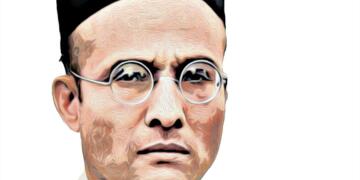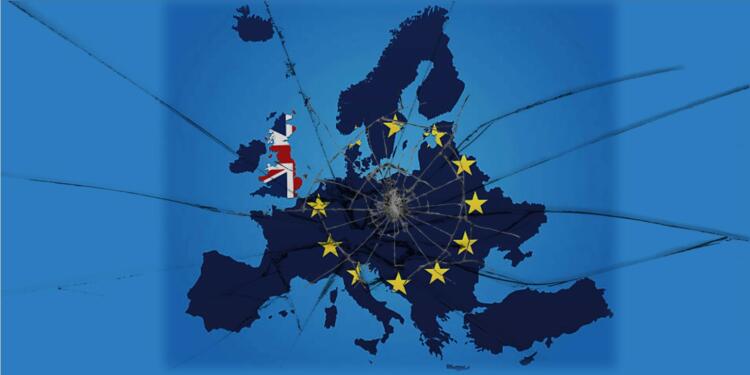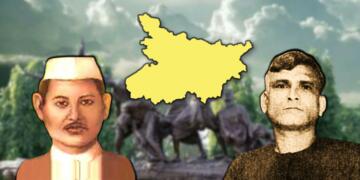Just like every other solution, political ideologies are also not the permanent solution to any problem. An institutional mechanism, immune from any political force in power, is required. The European Union was supposed to act as one such institution. But the authoritarian left wing had corroded it from the inside. Now, the tyranny of compassion is being replaced by right wing parties in Europe.
Rise of right wing in Europe
It is only a matter of time before Giorgia Meloni takes oath as Prime Minister of Italy. In popular parlance, she is considered a far-right politician. Georgia’s connection with Benito Mussolini was the main talking point of her rivals.
Despite that, Giorgia was chosen by 26 per cent of Italian voters to direct their future. Her emphasis on the traditional family system and open defiance of corporatists is believed to have done the job for Giorgia.
But Italy is not the only one in Europe. Italy is, in fact, part of a larger pattern of the rise of the right wing in Europe. A few days before confirmation of Giorgia’s victory, Sweden Democrats, a right wing party, became the second most popular party in Europe. It grabbed 20.5 per cent of Swedish votes. There is little difference between the USPs of Jimmie Åkesson’s Sweden Democrats and Giorgia Meloni’s Brothers of Italy.
Orban leads the chart
The rise of both these leaders has confirmed what Hungarian Viktor Orban saw in the early 2000s. He was probably the first leader in the European Union whose advent to power was attributed to him raising issues of day-to-day relevance, something which the left wing has traditionally been known for. Within 12 years, Orban has become so popular that despite opposition parties’ unity, he won the trust of more than 53 per cent of voters in the 2022 elections.
Hungary’s trickle-down effect is visible in Poland as well. Even in countries where left-wing governments are in power, policies are quickly moving in the right direction. France is one such example.
Tracking the evolution of the concept of Unified Europe
The instant reason behind this radical change may be pandemic related restlessness, but it was a long way coming. The roots of this change were sown just after the second world war. After the end of the war, politicians from the other end of the spectrum highlighted the atrocities done by populist leaders like Hitler, Mussolini.
Within a matter of time, global world order was created to avoid the rise of such leaders who caused the world war. The United Nations was established, setting the base for liberal world order in which trade could be done freely.
The emphasis was on making people more prosperous by eliminating social constructions like borders. The removal of border restrictions was particularly needed in post-war Europe. Every country needed cheap labour and a wider market for consumption. Through the Paris Treaty (operative after 1952), a foundation for a unified Europe was set up.
Interestingly, even then energy security was the instant cause behind it. Through the Schuman declaration of 1950, France, Belgium, Netherlands, Luxembourg, West Germany and Italy came together to form an organisation called European Coal and Steel Community. It was funded by the Marshall Plan, according to which the United States had vowed to fund the development of Western Europe.
Open borders and common currency
5 years later, the Treaty of Rome was signed by Belgium, France, Italy, Luxembourg, the Netherlands, and West Germany. The treaty paved the way for the creation of the European Economic Community (EEC) and the European Atomic Energy Community (Euratom).
Within 3 decades, Denmark, Ireland, the UK, Norway, Portugal, Spain and others joined the rank. The first direct election to the European Parliament was held in 1979. The trust was getting built and The Schengen Agreement signed six years later, formalised it by allowing passport-free travel.
The countries in the integrated bloc were clocking better growth rates than those who were not in it. Additionally, the US was funding most of them. Later, Maastricht, Amsterdam and Nice treaties consolidated the power of countries under the grouping. To take advantage of the situation, more and more countries rushed to join in. As of today, Euro, the common coin of unified Europe, is accepted in 19 countries of the Eurozone.
Economic growth and immigration
The ease of doing business led to rapid development. For more than 3 decades, the European Union as a bloc maintained a healthy growth rate of between 2 and 6 per cent. Dips during the tech bubble and 2008 crisis were witnesses, but they largely remained deviations from the normal.
The news soon spread to the other parts of the world and migrants, both economic and humanitarian, started to flood the European shores. People from Asia, Africa especially sought Europe as a haven of opportunities. They were ready to work for lower wages than locals.
Soon, the electoral politics around it started to be woven. The whole of Europe got divided into two segments on immigration. The left wing claimed that immigration is not good, while the right wing claimed that immigration has some irreversible consequences. The foremost of those consequences was the erosion of local identity groups such as hardcore Christians and people of other faiths remaining cordially with the Caucasian race.
The division between right and left wing
Right wingers are mainly apprehensive about the arrival of Muslim immigrants in the European landmass. In 1950, Muslims comprised only 2 per cent of the European population. The number jumped to 6 per cent of the total population in 2020.
Along with Muslims, their traditions and cultures arrived there as well. Though various codes of their ethics were not acceptable to the liberal world order, the left wing shielded these people in the name of religious freedom.
In 2016, a female German politician refused to blame her actual rapists for her sexual exploitation. Do you know why? Because they were immigrants and she supported immigrants. Even Taharrush, an Arab game of gang raping women on the street, started to dominate the headlines in Germany and other European nations.
Germany is the focal point and Merkel is the culprit
Germany was paying for its blunders. Despite the prevailing sentiments against immigrants’ appeasement after the 2008 financial crisis, German Angela Merkel sought to become Angel for migrants all across Europe.
Merkel was aware of the rise of the Hungarian and Polish right wing. Despite that, she took in 1.1 million refugees from Syria, Iraq and Afghanistan. Merkel was getting unpopular among her voters and the European media fuelled the fire by airing explosive interviews of anti-migrant leaders all across Europe.
The arrival of Donald Trump fuelled the fire. Now people concerned about their jobs started to listen to Trump and found parallel destructive policies in their geographies as well. A hunt for the root of the problem had begun in bigger countries such as the UK, France, Spain and even Scandinavian ones.
The European Union being a common connecting link was found to be the main culprit. In the UK, anti-EU Boris Johnson emerged as the top leader and was successful in getting Britain out of the European Union.
Europe: Even left wing supports are taking the ‘right’ turn
In France, Marine Le Pen, considered far-right, gave a tough fight to Macron in the 2017 elections. Though she could not form the government, she was successful in conveying to the French that liberal world order was a problem.
Later, during his Presidency, Macron also took some decisions which a right winger could feel proud of. This is apparently the reason why he came back to power in 2022.
Rise of right wing in Europe: Wokeism menace
The rest of the damage was done by the left’s adherents to wokeism and other impractical aspects. The excessive emphasis on LGBTQ rights, something to which the majority of the population does not even subscribe, sent populist waves in Europe.
The traditional family system was now under threat and falling birth rate leading to a decline in the rate of increase in population is now a bigger cause of concern. In 2022, the birth rate of 1.49 births per woman is way below the required average in the Eurozone.
Left wing leaders were cut off from reality during Covid
But instead of addressing that, the liberal leaders somehow ended up increasing the problem for average family units. One of the reasons people do not opt for children is the rising cost of living.
Rather than focussing on decreasing it, their leaders focussed on walking on American talking points of authoritarian control during Covid. When the pandemic arrived, they had two solutions in mind. Either they would wait for vaccines by closing down the economy, or they would have kept the economy open and relied on herd immunity.
Possibly, because the first method was politically more feasible and a better test of loyalty, EU leaders shut down their economies. Resultantly, in 2020, the EU saw nearly a 6 per cent decline in its GDP. Add to that unemployment and a halt in production.
Within 6 months, vaccines had arrived, but even they proved to be ineffective in the ultimate analysis. People were desperate to go out of the house and liberal leaders were insisting on their authoritarian response of locking them up till they received a booster dose.
Ukraine-Russia crisis worsened it
People did not have money and neither did they possess the freedom to earn it. The employment rate had tanked. Countries like Germany, Italy, France, Spain saw radical shifts and were the worst sufferers. The popularity of left wing leaders such as Pedro Sanchez came down.
Things started to improve by the end of 2021 and EU economies were just finding their feet. But the Ukraine-Russia crisis dealt another blow to the unity.
The EU decided to side with the USA and Ukraine and imposed sanctions on Russia. They decided to participate in their pseudo-moral stand and opted to shift their dependence on Russian energy. But such radical transformations are next to impossible to implement in the short term.
Now, Europeans are finding it tough to keep their lights on. Germany, the largest economy in Europe, is down to rationing electricity. The electricity bills are skyrocketing and people are now down to cutting wood, because, “winters are coming”.
At this time, aligning with Biden’s green agenda is even snatching food from their platter. Dutch farmers, possibly the most productive ones in the western world, are refusing to grow their produce. It comes at a time when the Eastern Europe skirmish has led to food grain and fertiliser shortages.
No wonder, politicians are coming to power through simple promises. They are just promising stable food on the platter and stable economic life. Additionally, Meloni’s election shows that if corporations have to thrive in the future, they will have to stop parroting woke agenda. It simply means that Europe needs to grow out of US’ sphere of influence.
Support TFI:
Support us to strengthen the ‘Right’ ideology of cultural nationalism by purchasing the best quality garments from TFI-STORE.COM




























